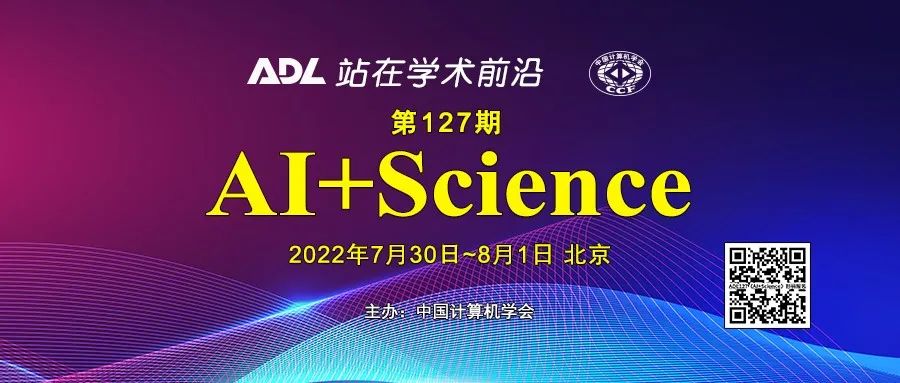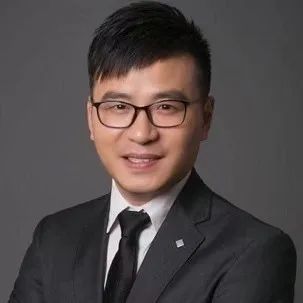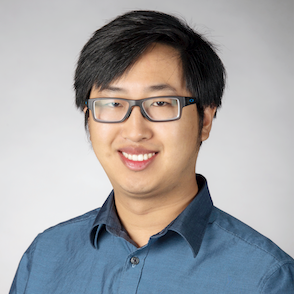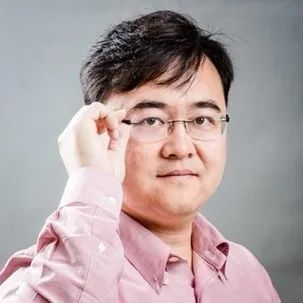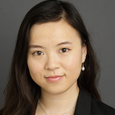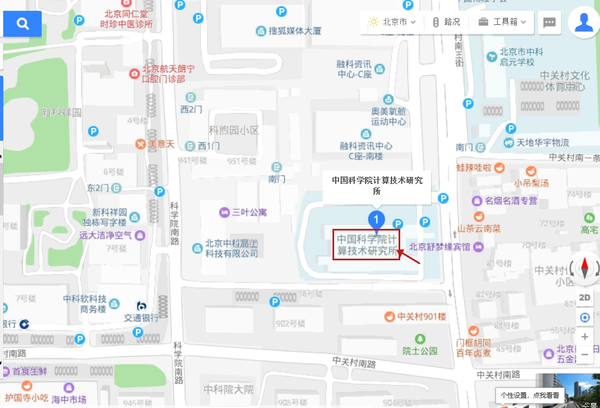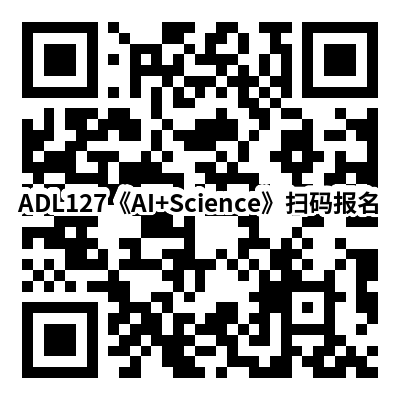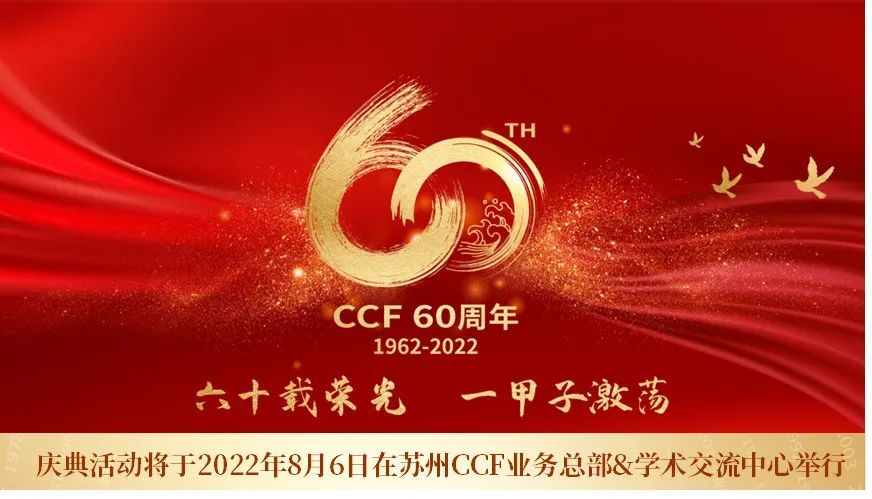线上线下同步举办-ADL127《AI+Science》开始报名
本期讲习班探索AI+Science的新概念、新理论、新方法。对科学智能这一新兴人工智能前沿交叉领域的基础方法、典型应用进行系统性介绍。邀请6位来自国内外高校和企业科研机构的优秀学者,为青年学者作主题报告,帮助学员开阔科研视野、增强实践能力。
CCF学科前沿讲习班
The CCF Advanced Disciplines Lectures
CCFADL第127期
主题 AI+Science
2022年7月30日 至 8月1日 北京
本期CCF学科前沿讲习班ADL127《AI + Science》,对科学智能这一新兴人工智能前沿交叉领域的基础方法、典型应用进行系统性介绍,既涵盖物理启发人工智能、反问题机器学习、可解释数理方程符号学习、几何深度学习等基础理论和方法,又包括开源平台和社区发展与实践、复杂系统建模与仿真、求解计算力学问题、未知规律知识挖掘、药物发现等跨学科场景应用介绍。本期讲习班邀请了领域内6位来自于国内外高校和企业科研机构的优秀学者,为该领域的青年学者作主题报告,帮助学员开阔科研视野、增强实践能力。
学术主任:孙浩 中国人民大学
主办单位:中国计算机学会
本期ADL主题《AI+Science》,由中国人民大学高瓴人工智能学院长聘副教授、博导孙浩担任学术主任,邀请到张林峰(深势科技创始人兼首席科学家)、董彬(北京大学长聘副教授、博导)、王建勋(美国圣母大学长聘序列助理教授、博导)、虞琦(美国加州大学圣地亚哥分校长聘序列助理教授、博导)、唐建(加拿大蒙特利尔高等商学院和MILA人工智能研究所长聘副教授、博导)为青年学者作主题报告。
活动日程
2022年7月30日(周六) |
|
9:00-9:15 |
开班仪式 |
9:15-9:30 |
全体合影 |
9:30-12:30 |
专题讲座1:AI for Science开源社区发展的实践与思考 张林峰 深势科技 创始人兼首席科学家 |
12:30-14:00 |
午餐 |
14:00-17:00 |
专题讲座2:Symbolic Learning of Governing Equations 孙浩 中国人民大学 长聘副教授、博导 |
2022年7月31日(周日) |
|
9:00-12:00 |
专题讲座3:Scientific Machine Learning for Computational Mechanics 王建勋 美国圣母大学 长聘序列助理教授、博导 |
12:00-13:30 |
午餐 |
13:30-16:30 |
专题讲座4:Machine Learning for Inverse Problems 董彬 北京大学 长聘副教授、博导 |
2022年8月1日(周一) |
|
9:00-12:00 |
专题讲座5:Physics-Guided AI for Learning Spatiotemporal Dynamics 虞琦 美国加州大学圣地亚哥分校长聘序列助理教授、博导 |
12:00-13:30 |
午餐 |
13:30-16:30 |
专题讲座6:Geometric Deep Learning for Drug Discovery 唐建 加拿大蒙特利尔高等商学院和MILA人工智能研究所长聘副教授、博导 |
16:30-17:00 |
小结 |
特邀讲者
张林峰
深势科技
讲者简介:张林峰,北京深势科技有限公司创始人、首席科学家,北京科学智能研究院副院长、研究员。2020年博士毕业于普林斯顿大学应用数学系,2016年本科毕业于北京大学元培学院。林峰通过有效结合机器学习和多尺度建模方法,有效解决了计算化学、分子模拟、增强采样等方向中的一些关键问题。共发表50余篇论文,发展了DeePMD-kit等开源软件和DeepModeling开源社区。林峰作为核心开发者的工作获得2020年度高性能计算领域最高奖ACM戈登贝尔奖。
报告题目:AI for Science开源社区发展的实践与思考
报告摘要:AI for Science正在成为学界和业界极为关注的话题。它将有望推动科研范式和产业形态的新一轮升级,同时也面临着很多挑战。在本报告中,我将分享在推动DeepModeling——一个致力于打造AI for Science时代基础设施平台的开源社区——过程中的实践与思考。我将着重探讨“开源模式”在这一语境下的必要性和困难,也将结合在深势科技和北京科学智能研究院的实践,分享一系列从创新到落地的实际案例。
孙浩
中国人民大学
讲者简介:孙浩,中国人民大学高瓴人工智能学院“长聘副教授、博导”,国家高层次人才青年专家,麻省理工学院兼职研究员、美国东北大学兼职教授。2014年在美国哥伦比亚大学取得工程力学博士学位,随后在麻省理工学院从事博士后研究,曾任美国匹兹堡大学、美国东北大学终身序列助理教授、博导。主要从事科学智能、人工智能数理基础与理工交叉研究,包含可诠释性深度学习、基于物理信息的深度学习、符号强化学习与推理、数据驱动复杂动力系统建模与识别、控制方程找型、基础设施健康监测与智能化管理等方向。在国际一流SCI期刊(如《自然-通讯》)和计算机顶会等各类重要刊物上共发表论文50余篇;研究成果受到了几十家国际知名媒体的广泛报导(例如《福克斯新闻》、《麻省理工新闻》、《科学日报》、《麻省理工科技评论》等)。2018年入选福布斯美国“30位30岁以下精英榜(科学类)”,2019年当选“美国十大华人杰出青年”。
报告题目:Symbolic Learning of Governing Equations
报告摘要:科学探索,也许是人工智能领域新兴而最具有星辰大海想象空间的方向之一。大到宇宙天体运动演化,小到混乱无序的分子运动,在过去几个世纪中,科学家们前赴后继,探寻简单、优雅、和谐的数学符号方程,来描述大千世界的普适规律。从经典力学、电磁学到量子力学,一个又一个被发现的规律,在人类科学发展进程中留下浓墨重彩。而世界如此之广袤,还有太多的科学奥秘,未被人类发掘和定义。当AI成长为挖掘海量数据信息的关键利器,它为探索科学问题开启了一扇新的大门。这个报告将介绍符号学习与推理基本概念和方法,讨论如何从数据中提取数理方程,进一步探索用于描述未知系统状态的数学方程或定律。
王建勋
美国圣母大学
讲者简介:Dr. Jian-Xun Wang is a tenure-track assistant professor of Aerospace and Mechanical Engineering at the University of Notre Dame. Dr. Wang completed his Ph.D. in Aerospace Engineering at Virginia Tech in 2017 and followed it with a one-year postdoctoral scholar appointment at the University of California, Berkeley before joining Notre Dame in 2018. Dr. Wang has a multidisciplinary research background, cutting cross scientific machine learning, data assimilation, Bayesian inference, uncertainty quantification, and computational mechanics. In particular, his research focus is at the interface of physics-informed deep learning, data-driven modeling, scientific computing, and physics-based computational mechanics. He has (co-) led research projects with $4M funds sponsored by multiple agencies, including NSF, AFSOR, DARPA, CICP, etc. Dr. Wang received the NSF CAREER Award in 2021 and the Top 10 Outstanding Chinese American Youth Award in 2022. Dr. Wang also serves on the editorial board of Nature Scientific Report, and he is a member-at-large of the US. Association of Computational Mechanics (USACM) Technical Thrust Area on Uncertainty Quantification.
报告题目:Scientific Machine Learning for Computational Mechanics
报告摘要:High-fidelity modeling and simulation of complex physics systems based on partial differential equations (PDEs) and numerical discretization have been developed for decades and have achieved great success. Nonetheless, efficiently solving these PDEs (e.g., Navier-Stokes equations) with high accuracy in many scenarios (e.g., turbulence, complex boundary conditions, large scale, many-query needs) is still challenging. Recent advances in data science and machine learning, combined with the ever-increasing availability of high-fidelity simulation and measurement data, open up new opportunities for developing data-enabled computational modeling of complex systems. Although the state-of-the-art machine/deep learning techniques hold great promise, there are still many challenges: e.g., they often need a large amount of data that might not be available, lack interpretability and explainability, and can not guarantee convergence. On the other hand, there is often a richness of prior knowledge, including physical laws and phenomenological principles, which can be leveraged in this regard. Thus, there is an urgent need for fundamentally new and transformative machine learning techniques, closely grounded in physics, to address the aforementioned challenges in predictive modeling for complex physical systems. This talk will briefly discuss recent developments in scientific machine learning techniques in computational mechanics, including structure-preserved machine learning, physics-informed neural networks, geometric deep learning, and physics-informed reinforcement learning for dynamic control.
董彬
北京大学
讲者简介:董彬,CCF YOCSEF学术委员会委员,北京国际数学研究中心长聘副教授、国际机器学习研究中心副主任、大数据分析与应用国家工程实验室研究员、国家生物医学成像科学中心研究员。2003年本科毕业于北京大学数学科学学院、2005年在新加坡国立大学数学系获得硕士学位、2009年在美国加州大学洛杉矶分校数学系获得博士学位。博士毕业后曾在美国加州大学圣迭戈分校数学系任访问助理教授、2011-2014年在美国亚利桑那大学数学系任助理教授,2014年底入职北京大学。主要研究领域为科学计算、机器学习及其在计算成像和数据分析中的应用。现任期刊《Inverse Problems and Imaging》编委、《CSIAM Transactions on Applied Mathematics》、《Journal of Computational Mathematics》、《Journal of Machine Learning》副主编。2014年获得求是杰出青年学者奖,2022年受邀在世界数学家大会(ICM)做45分钟报告。
报告题目:Machine Learning for Inverse Problems
报告摘要:报告将围绕科学计算和计算成像中的一些重要问题(如电磁仿真和流体计算中的逆向设计与模型约减、医疗影像重建与分析等),结合报告人个人科研经验,介绍机器学习如何与传统方法相结合从而进一步推动反问题算法的研究。
虞琦
美国加州大学圣地亚哥分校
讲者简介:Dr. Rose Yu is an assistant professor at the University of California San Diego, Department of Computer Science and Engineering. Her research focuses on advancing machine learning techniques for large-scale spatiotemporal data analysis, with applications to sustainability, health, and physical sciences. A particular emphasis of her research is on physics-guided AI which aims to integrate first principles with data-driven models. Among her awards, she has won NSF CAREER Award, Faculty Research Award from JP Morgan, Facebook, Google, Amazon, and Adobe, Several Best Paper Awards, Best Dissertation Award at USC, and was nominated as one of the ’MIT Rising Stars in EECS’.
报告题目:Physics-Guided AI for Learning Spatiotemporal Dynamics
报告摘要:Applications such as public health, transportation, climate science, and aerospace engineering require learning complex dynamics from large-scale spatiotemporal data. Such data is often non-linear, non-Euclidean, high-dimensional, and demonstrates complicated dependencies. Existing machine learning frameworks are still insufficient to learn spatiotemporal dynamics as they often fail to exploit the underlying physics principles. I will demonstrate how to inject physical knowledge in AI to deal with these challenges. I will showcase the application of these methods to problems such as forecasting COVID-19, traffic modeling, accelerating turbulence simulations, and combating ground effect in quadcopter landing.
唐建
加拿大蒙特利尔高等商学院和MILA人工智能研究所
讲者简介:Jian Tang is currently an associate professor at Mila-Quebec AI Institute and also at Computer Science Department and Business School of University of Montreal. He is a Canada CIFAR AI Research Chair. His main research interests are graph representation learning, graph neural networks, geometric deep learning, deep generative models, knowledge graphs and drug discovery. During his PhD, he was awarded with the best paper in ICML2014; in 2016, he was nominated for the best paper award in the top data mining conference World Wide Web (WWW); in 2020, he is awarded with Amazon and Tencent Faculty Research Award. He is one of the most representative researchers in the growing field of graph representation learning and has published a set of representative works in this field such as LINE and RotatE. His work LINE on node representation learning has been widely recognized and is the most cited paper at the WWW conference between 2015 and 2019. Recently, his group just released an open-source machine learning package, called TorchDrug, aiming at making AI drug discovery software and libraries.
报告题目:Geometric Deep Learning for Drug Discovery
报告摘要:Drug discovery is a very long and expensive process, taking on average more than 10 years and costing $2.5B to develop a new drug. Artificial intelligence has the potential to significantly accelerate the process of drug discovery by extracting evidence from a huge amount of biomedical data and hence revolutionizes the entire pharmaceutical industry. In particular, graph representation learning and geometric deep learning--a fast growing topic in the machine learning and data mining community focusing on deep learning for graph-structured and 3D data---has seen great opportunities for drug discovery as many data in the domain are represented as graphs or 3D structures (e.g. molecules, proteins, biomedical knowledge graphs). In this talk, I will introduce our recent progress on geometric deep learning for drug discovery and also a newly released open-source machine learning platform for drug discovery, called TorchDrug.
学术主任
孙浩
孙浩,中国人民大学高瓴人工智能学院“长聘副教授、博导”,国家高层次人才青年专家,麻省理工学院兼职研究员、美国东北大学兼职教授。2014年在美国哥伦比亚大学取得工程力学博士学位,随后在麻省理工学院从事博士后研究,曾任美国匹兹堡大学、美国东北大学终身序列助理教授、博导。主要从事科学智能、人工智能数理基础与理工交叉研究,包含可诠释性深度学习、基于物理信息的深度学习、符号强化学习与推理、数据驱动复杂动力系统建模与识别、控制方程找型、基础设施健康监测与智能化管理等方向。在国际一流SCI期刊(如《自然-通讯》)和计算机顶会等各类重要刊物上共发表论文50余篇;研究成果受到了几十家国际知名媒体的广泛报导(例如《福克斯新闻》、《麻省理工新闻》、《科学日报》、《麻省理工科技评论》等)。2018年入选福布斯美国“30位30岁以下精英榜(科学类)”,2019年当选“美国十大华人杰出青年”。
时间:2022年7月30日至8月1日
线上地址:报名交费成功后通过邮件发送。
线下地址(疫情允许的情况下):北京•中国科学院计算技术研究所一层报告厅(北京市海淀区中关村科学院南路6号)
报名须知:
1、报名费:CCF会员2800元,非会员3600元。食宿交通费用自理。根据交费先后顺序,会员优先的原则录取,额满为止。疫情期间,根据政府疫情防控政策随时调整举办形式(线上、线下)。
2、报名截止日期:7月28日。报名请预留不会拦截外部邮件的邮箱,如qq邮箱。
3、咨询邮箱 : adl@ccf.org.cn
缴费方式:
在报名系统中在线缴费或者通过银行转账:
银行转账(支持网银、支付宝):
开户行:招商银行北京海淀支行
户名:中国计算机学会
账号:110943026510701
请务必注明:ADL127+姓名
报名缴费后,报名系统中显示缴费完成,即为报名成功。
报名方式:
请选择以下两种方式之一报名:
1、扫描(识别)以下二维码报名:
2、点击报名链接报名:
https://conf.ccf.org.cn/ADL127
CCF推荐
【精品文章】
点击“阅读原文”,立即报名。

